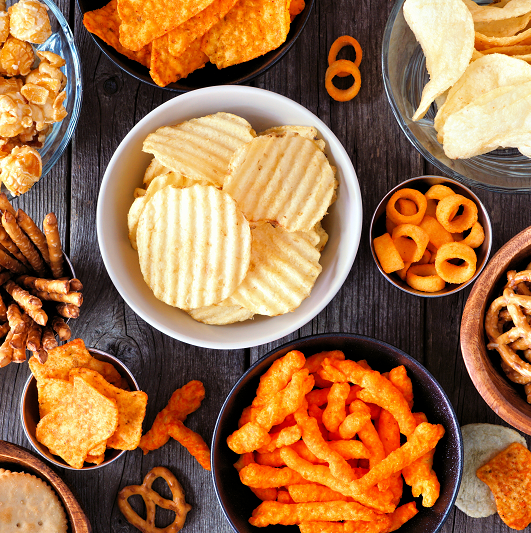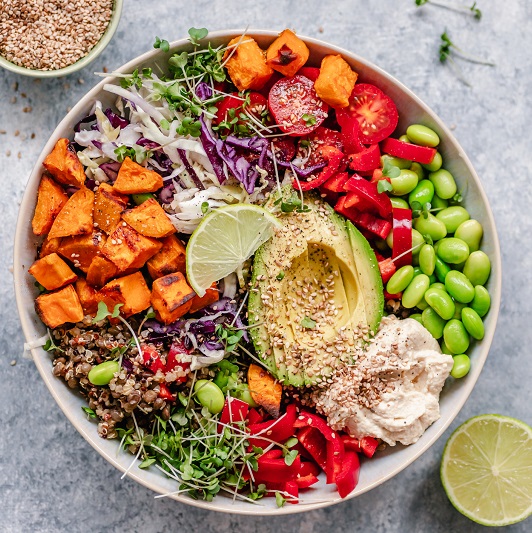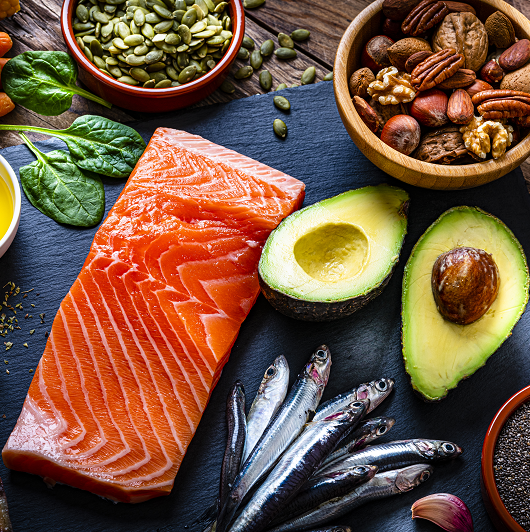Can Food Impact Your Mood?

March 21, 2024
Mental health is only associated with the brain, right? Not necessarily.
Neurotransmitters, which affect your mood, aren't just made in the brain; they're also produced by gut cells. For example, serotonin (a “feel good” neurotransmitter) is linked to mental well-being, and up to 95% of it is made in the gut.
That means what goes into your gut impacts your mood. The evidence is clear: There is a definitive link between what we eat and how we feel mentally and emotionally.
“Mental health improves when people start to eat better,” says integrative medicine specialist David Leopold, M.D.
But are there other ways that food impacts mental health? And can eating a certain type of diet improve your mood?
Dr. Leopold affirms there is substantial global research that examines what people eat (or don’t eat) and how it correlates with their moods. Though conducted in different cultures and locations throughout the world, the studies reach the same conclusion.
“The people who eat plant-based diets, such as those high in legumes and beans, fruits, vegetables, and nuts/seeds but low in processed foods and excess sugar, do better from a mental health standpoint,” says Dr. Leopold.
This research has been reproduced several times in subsequent studies. For example, many researchers have looked at whether diet can affect depression — and the answer continues to come back as a resounding yes.
How Does Your Diet Affect Your Brain?
Beyond your gut health, what you eat affects several physiological and biochemical systems in the body. Your diet plays a role in:
- Nutrient balance: A balanced diet rich in essential nutrients such as omega-3 fatty acids, vitamins, minerals, and antioxidants supports optimal brain function and neurotransmitter production, essential for regulating mood.
- Blood sugar levels: Foods high in refined carbohydrates and sugars can cause rapid spikes and crashes in blood sugar levels, leading to mood swings, irritability, and fatigue. On the other hand, complex carbohydrates, fiber-rich foods, and balanced meals help stabilize blood sugar levels and promote sustained energy levels and mood stability.
- Serotonin production: Serotonin, often referred to as the "feel-good" neurotransmitter, is produced in the brain and the gut. Foods rich in tryptophan, such as turkey, chicken, nuts, seeds and dairy products, can support serotonin production and promote positive mood.
- Micronutrient deficiencies: Not getting enough essential vitamins and minerals, such as vitamin D, B vitamins, magnesium, and iron, is associated with mood disorders and depressive symptoms.
- Inflammation: Often triggered by diets high in processed foods, refined sugars, and unhealthy fats, chronic inflammation is linked to an increased risk of depression and other mood disorders. Anti-inflammatory foods, including fruits, vegetables, fatty fish, nuts and seeds, can help reduce inflammation and support mental well-being.
“Food can either reduce the amount of inflammation in the body or increase the amount of inflammation in the body,” explains Dr. Leopold. “And inflammation means increased risk for depression, stress, anxiety, other mental health issues.”
Which Foods Are Linked to Better Mental Health?
While it’s true that certain foods are more nutritious than others, Dr. Leopold stresses that if you’re eating a diet full of fruits, vegetables, whole grains, beans and legumes, and nuts/seeds, you’re likely getting the vitamins and nutrients you need.
But if you want to prioritize your mental health through the foods you eat, keep these additional guidelines in mind:
- DO eat foods with complex carbs, like whole grains and fruits, which can help keep your mood stable by giving you energy that lasts longer.
- DO eat foods rich in omega-3 fatty acids, such as fatty fish like salmon, walnuts, and flaxseeds, which are linked to better mood and brain health.
- DO eat fermented foods like yogurt, kefir, and kimchi, which contain probiotics that can support a healthy gut, which is linked to improved mood and mental health.
- DO NOT eat foods with lots of sugar and refined carbs, like soda, candy, and white bread, which can make your mood swing up and down because they mess with your blood sugar.
“Try to make 80-85% of what you’re eating healthy, and pull back on the things we know don’t have positive effects,” says Dr. Leopold. “Reduce the amount of processed foods you’re eating and try to increase whole grains, beans and legumes, nuts and seeds, fruits and vegetables.”
How to Improve Your Diet to Improve Your Mood
So, you’ve decided you want to shift your diet to benefit your mental health. What are the best ways to do that? And how can you set yourself up for greater success?
“Healthy eating starts at the grocery store,” says Dr. Leopold. “Stay away from the highly processed chips and baked goods. Try to focus on the enjoyment of eating less processed foods.”
Another key step is to educate yourself. Understanding the why behind what you’re doing can motivate you to stay the course. In addition to reading this, do more research online and find recipes and foods that taste good to you.
“An educated and empowered patient is the most valuable patient to have,” says Dr. Leopold. “If you eat better, you’ll feel better physically, then feel better emotionally. It’s a snowball effect.”
Next Steps & Resources
- Meet our source: David C. Leopold, M.D.
- To make an appointment with Dr. Leopold or another physician near you, call 800-822-8905 or visit our website.
The material provided through HealthU is intended to be used as general information only and should not replace the advice of your physician. Always consult your physician for individual care.





